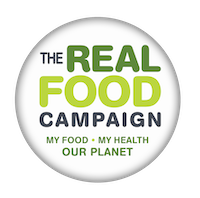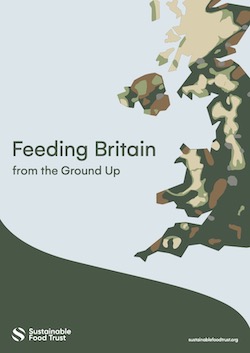This page aims to explore some of the issues of soil health and food sustainability and how that might relate to our own health. We will look in more detail at some of the solutions separately.
Human health cannot be viewed simply as a ‘health sector’ issue, but as a systemic ‘food-and-health’ issue. Our health and the food we eat depend on sustainable food systems – on how our food is grown and produced. This sustainability depends on the quality of our soil.
A sustainable food system is protective and respectful of biodiversity and ecosystems, culturally acceptable, accessible, economically fair and affordable, nutritionally adequate, safe and healthy, while optimizing natural and human resources
The Food and Agriculture Organization of the United Nations
But, when we look closely at our food system, we become aware of how unsustainable it has become. We become aware of how disconnected we are from the soil in which our food is grown, from the crop varieties that offer us optimum health and from the bio-diverse, local ecosystems for planetary health.
Soil
Soil is one of the earth’s most important natural resources. Healthy soils are essential for healthy plant growth, human nutrition, and water filtration. Healthy soil supports a landscape that is more resilient to the impacts of drought, flood, or fire. Soil helps to regulate the Earth’s climate and stores more carbon than all of the world’s forests combined.
We are in danger of running out of topsoil which threatens our ability to feed ourselves in the future. Restoring our soils is one of the most important things we can do for our food, health and planet.
Feeding Britain – For climate, nature and health
If we change the way we farm and what we eat, we could improve our health, protect nature, combat climate change and be more food secure as a nation.
A UK-wide transition to sustainable and regenerative farming practices, to tackle the climate, nature and public health crises, could produce enough food to maintain and potentially even improve current levels of self-sufficiency, provided we ate differently, ate less and cut food waste.
These are the key conclusions of the SFT report, Feeding Britain from the Ground Up, which explores the potential impacts on land use, food production and individual diets of a UK-wide transition to sustainable farming based on biological principles.
Your FoodPrint?
What you eat, where it comes from, and how it was produced contributes to your FoodPrint — think of it like a carbon footprint, but for food.
Your “foodprint” is the result of everything it takes to get your food from the farm to your plate. Many of those processes are invisible to consumers.
Industrial food production — including animal products like beef, pork, chicken and eggs and also crops — takes a tremendous toll on our soil, air and water, as well as on the workers and the surrounding communities.
Take this 3-minute quiz to Find Your Foodprint

